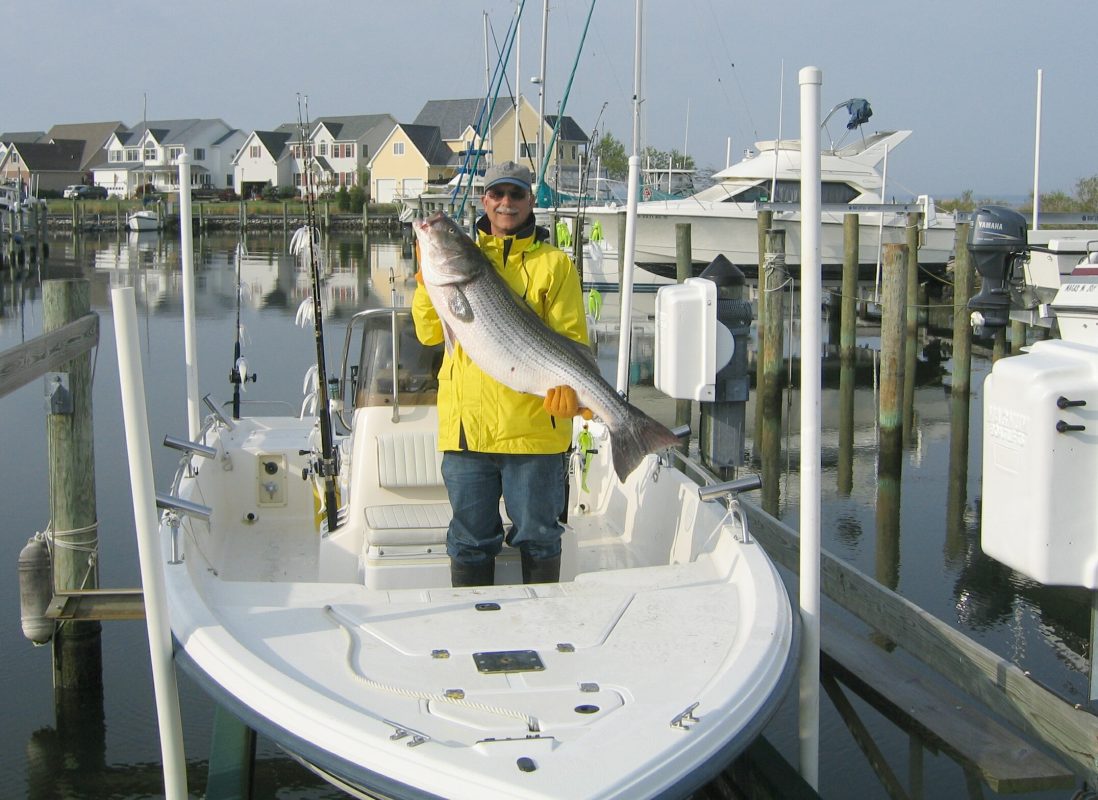The Atlantic States Marine Fisheries Commission (ASMFC) has determined there are insufficient Atlantic menhaden on the Atlantic Coast to feed critically important predators such as striped bass, bluefish, and weakfish.
So they lowered the total allowable catch for all Atlantic Coast states from 216,000 metric tons to 192,456 tons for a 10% reduction. Of this total Virginia was allotted 78.66% of the total.
Virginia allocates over 90% of its quota to Omega Protein, the last remaining industrial reduction fishery on the Atlantic Coast. That total is 136,313 metric tons which represents 70.83% of the total allowable catch for the entire Atlantic Coast. Of this total the ASMFC allows 51,000 metric tons to be harvested in the Virginia portion of the Chesapeake Bay.
Omega Protein is allowed to harvest 26.5% of the entire Atlantic Coast total allowable catch from the Virginia portion of the Chesapeake Bay. They are clearly overharvesting Atlantic menhaden in the Chesapeake Bay.
It gets worse. Omega Protein frequently positions its boat just outside the entrance of the Chesapeake Bay so they can harvest migrating menhaden entering and exiting the Bay. So, what’s the impact?
Overharvesting of Atlantic menhaden by Omega Protein is adversely impacting the commercial harvest of striped bass, bluefish, and weakfish. Data indicates a steady decline in the commercial harvest of these fish in the Chesapeake Bay and Potomac River. Over the last 22 years the commercial harvest has declined 34%, 76%, and 98%, respectively.
These declines have adversely impacted the commercial fishermen in Maryland and Virginia who are engaged in the harvesting of these predators to make a living. Since 2000, Maryland has experienced a 39% decline in commercial fishermen (330), and Virginia has experienced a 40% decline in commercial fishermen (338).
In addition, overharvesting of Atlantic menhaden has adversely impacted ospreys in the Chesapeake Bay.
Overharvesting of Atlantic menhaden in the Chesapeake Bay has a coast-wide impact as 60% or more of the striped bass in the Atlantic Ocean begin as spawn in the Chesapeake Bay and its tributaries. And according to the ASMFC, striped bass are in poor condition as they are overfished and overfishing is occurring coast-wide.
It’s time to end Omega Protein’s reduction fishery in the Chesapeake Bay and the ocean entrance to the Bay. Atlantic menhaden need to recover for the benefit of recreational fishermen, non-reduction commercial fishermen, and last but not least, the marine environment.
Phil Zalesak, President
Southern Maryland Recreational Fishing Organization
http://www.smrfo.com
